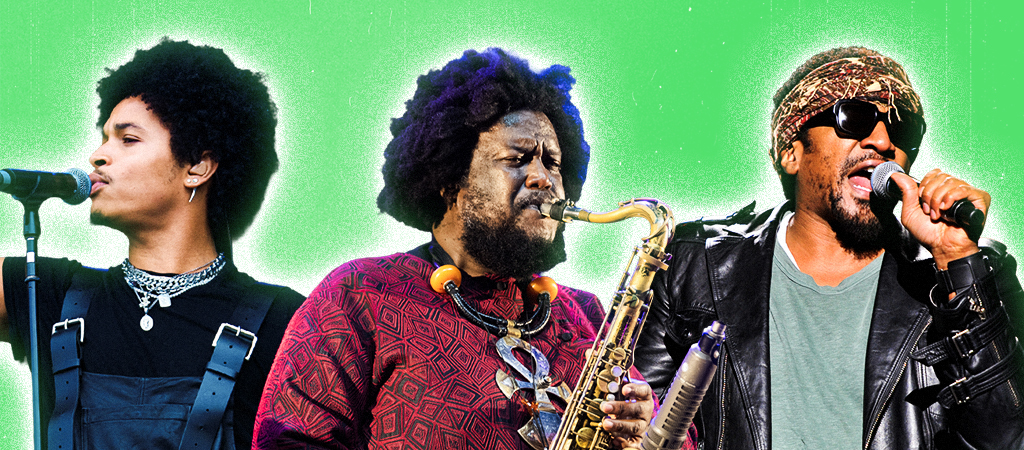The alternative committee will likely have a lively discussion about whether the album has more in common with alternative or pop.
Last week, we asked whether Taylor Swift’s new album Folklore would put her back in the album of the year finals at the Grammys for the first time since she won for 1989. Most of you seem to think it will.
Here’s a tougher follow-up question: Will the album compete for best pop vocal album, as Swift’s last three albums have, or best alternative music album? (Albums may compete in only one “genre album” category.) Unfortunately, we can’t just go by the charts: The album enters both the all-genre Billboard 200 and Alternative Albums at No. 1 this week.
The album has strong alternative credentials. Aaron Dessner, who co-produced the album with Swift and her long-time collaborator Jack Antonoff, and who co-wrote nine songs on the album with Swift, won a Grammy in the alternative category with his band, The National, for Sleep Well Beast. The National were also nominated in that category for their previous album, Trouble Will Find Me.
And Justin Vernon, who co-wrote “Exile,” which features his band Bon Iver, won a Grammy in the alternative field for Bon Iver. Bon Iver was also nominated in that category with its next two albums, 22, A Million and I,I.
Antonoff’s history at the Grammys has mostly been in the pop field. Some Nights, his breakthrough album with the trio fun., was nominated for best pop vocal album. Swift’s 1989 (his first album with the star) won in that category. Her next two albums, Reputation and Lover, were nominated there, as were P!nk’s Beautiful Trauma and Sia’s This Is Acting, on which he also worked. Lorde’s Melodrama and Lana Del Rey’s Norman F***ing Rockwell! both competed in the pop album category—though neither wound up with a nomination. (Both albums were nominated for album of the year.) One of Antonoff’s Grammy-nominated projects — St. Vincent’s Masseduction — was nominated for best alternative music album.
The alternative committee will likely have a lively discussion about whether Folklore has more in common with alternative or pop. A lot is at stake. If Swift is nominated, she would have an excellent chance of winning.
Swift would be just the third female solo artist to win best alternative music album, following Sinéad O’Connor, the first winner in the category for 1990’s I Do Not Want What I Haven’t Got, and St. Vincent, for St. Vincent (2014).
Moreover, Swift would become the first artist to win for both best pop vocal album (which she did for 1989) and best alternative music album. She is already the only artist to date to win for both best pop vocal album and best country album (which she did for Fearless).
If Folklore is classified as pop, and wins, Swift would become just the third artist to win twice in that category, following Kelly Clarkson and Adele.
How do the Grammys define the two categories? The Grammy guide (which is now online) doesn’t tell us much about best pop vocal album: “This category recognizes artistic excellence in pop vocal albums.” (Told you not to expect too much!)
But the guide has a detailed and interesting explanation of what it considers alternative music to be: “Alternative music may be defined as a genre of music that embraces attributes of progression and innovation in both the music and attitudes associated with it. It is often a less intense version of rock or a more intense version of pop and is typically regarded as more original, eclectic, or musically challenging. It may embrace a variety of sub-genres or any hybrids thereof and may include recordings that do not fit into other genre categories.”
Folklore has also been tagged “indie folk” and “electro-folk” by some critics. The Grammys no longer have a contemporary folk category, which they presented from 1986-2010, but they do have best folk album. Here’s what the Grammy guide says about that category: “This category recognizes excellence in folk recordings in modern and/or traditional vocal and instrumental styles, as well as original material by artists who utilize traditional and/or modern folk elements, sounds and instrumental techniques as the basis for their recordings. Folk music is primarily but not exclusively acoustic, with production and sensibility distinctly different from a pop approach.”
Swift is not listed on Billboard’s Americana/Folk Albums chart, which is topped by The Chicks’ Gaslighter (which the in-demand Antonoff also co-produced). For the record, the Grammys don’t take their cues from the charts, but there’s usually a correlation between where albums are charted and where they are categorized in the Grammy process.
We’ll leave you with two random Grammy facts about Swift.
Folklore has fewer producers (just three) than any Swift album since her first three albums, which each had just two producers. Nathan Chapman co-produced her debut album with Robert Ellis Orrall. Swift and Chapman co-produced her next two albums.
Bon Iver’s “Holocene” (2011) received Grammy nominations for both record and song of the year. fun.’s “We Are Young” (featuring Janelle Monáe) was nominated in both categories the following year. (It won song.) Swift has achieved that double-play three times, for “You Belong With Me” (2009),“Shake It Off” (2014) and “Blank Space” (2015).



